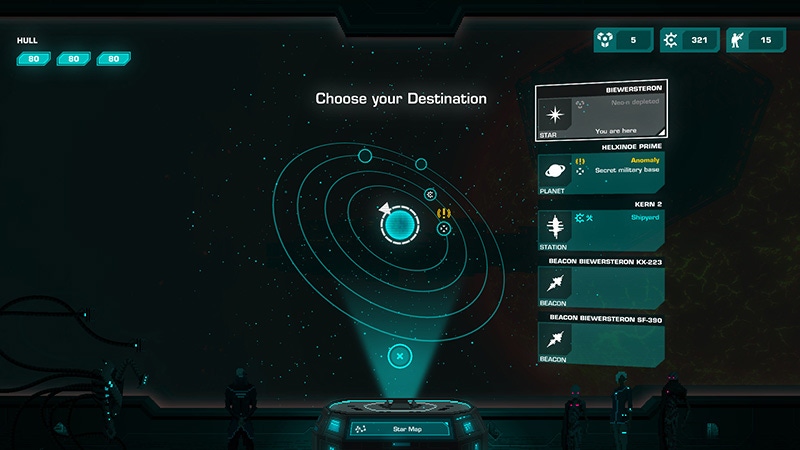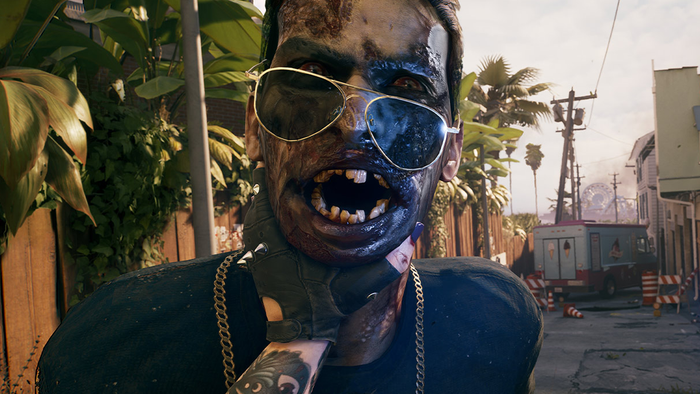
Featured Blog | This community-written post highlights the best of what the game industry has to offer. Read more like it on the Game Developer Blogs.
Sales comps for your game: how not to do it.
Alright - and also how to do it better!

[The GameDiscoverCo game discovery newsletter is written by ‘how people find your game’ expert & company founder Simon Carless, and is a regular look at how people discover and buy video games in the 2020s.]
‘I remember when this was all fields, you know. The Internet. All we had was IRC, FTP, and a little bit of Telnet. Now you’ve got your Twitch-es and your TikToks - and now we have to worry about whether people notice the stuff we make, too? Pshaw.’
This imaginary comment is courtesy of someone who doesn’t grok that the Internet’s reach has multiplied near-infinitely. Your games can now reach billions of people online, instead of 12 sweaty nerds in a university computer lab* (*including me) back in 1993. So let’s get on & work out how to do that…
Sales comps & estimating reach for your game(s)
So, discovery is a vital point of making sure your game gets out there and is a success. But in order to budget the game correctly, you also may need to estimate how many units you think it’s going to sell. (If you don’t do this, your publisher def. will!)
Which brings up an interesting quandary. How should developers think about estimating possible ROI on a game - whether self-funding or not? And how should publishers/funders think about it? Some framing thoughts:
The first obvious point is that publishers have a portfolio of games to manage risk. And in today’s market, I believe they should be expecting a minority of their games to be larger hits & help fund the others. So this changes their risk profile - they’re looking for the 20% of games that can ‘break out’. But they still need to pick realistic comparables.
On the other hand, if you’re a dev pitching a publisher or funder, it’s in your interest to be fairly optimistic with the comps. The funder can ignore those or not - though don’t look naively over-optimstic, devs. But you should come in by framing a significant possible upside, and let the funder produce their own take.
If you’re a dev that is putting down your own money, and you need ROI to self-fund your next game, for example - you need to have a much more conservative risk profile. Or at least a ‘plan B’ - contract work, taking another gig, etc - if the game doesn’t return as you expected.
Traditional methods of working out possible revenue for games often start by looking at key games in that genre or subgenre. And there’s a super-helpful new ‘market study’ Google sheet from the crew at Alt Shift Games (Crying Suns) which really helps with that:
To use it, make a copy of the spreadsheet, then, as Alt Shift says: “enter the AppId and it fills rows from Steam data + some raw estimation of unit sales and revenue.” (If too many people use it at once, it may overwhelm the API. If it’s not working, try later.)
So, if you’re making a 2D Metroidvania, go to Steam’s 2D Metroidvania category page, enter some of the top-selling games as comps, write down the median revenue numbers, and that’s how much $ your game will make. Right? No, that’s what you shouldn’t do. Let’s add some nuance:
To be realistic, try to pick recent games in the subgenre: for example, we noticed Koumajou Remilia: Scarlet Symphony is currently in the top-selling 2D Metroidvanias. Estimating its performance over Year 1 and including it as a comp would be better than just picking the top 10 ‘old’ games. We also like scanning all new subgenre Steam releases to get a general idea of review #s for your submarket over the last few months.
Top ‘evergreen’ comps can be a) much-updated games b) date from an era of less competition: sure, Dead Cells is just a spectacular 2D Metroidvania. But remember that it first game out in 2018, when there were many less games in the genre. And it’s had many years of DLC and free updates. So it writing down its total multi-year revenue as a ‘comp’ justified? (Maybe only as a single, super high-end comp.)
If you’re a dev pitching to publishers, still play up top-selling comps: We evaluate a lot of developer decks as part of GameDiscoverCo’s consulting*. So yes, from a dev perspective, we definitely think ‘three comps that are all 1 million+ units sold’ is just plain unrealistic. But two and a 50,000-seller? Sure! (*Hit us up if you’re a publisher/funder who wants portfolio management & game signing opinions from a third party, btw. We enjoy it.)
Before we finish up, two additional resources. Firstly, Glitch’s helpful Founder’s Kit webpage has that Pitch Decks showcase which includes decks for games like Bear & Breakfast and Button City, if you’d like to see how others are pitching. (Actually, we didn’t see too many ‘over the top’ comps in there, as a whole - good job!)
Secondly, in addition using specific game comps, why not also use the estimates we published last August - from ourselves and publisher Fellow Traveller - that are based around ‘# of Steam wishlists at launch’? Estimate based on your own games, or use GameDiscoverCo Plus Steam follower launch data (followers x10 = wishlists, roughly).
The wishlists-based estimate is the ‘other way round’ , and you may discover you need to get to some unlikely high wishlist numbers at launch to recoup as you intended. Either way, being realistic is key - and finding the right anchors for that is vital.
[We’re GameDiscoverCo, an agency based around one simple issue: how do players find, buy and enjoy your premium PC or console game? We run the newsletter you’re reading, and provide consulting services for publishers, funds, and other smart game industry folks.]
Read more about:
Featured BlogsAbout the Author(s)
You May Also Like













